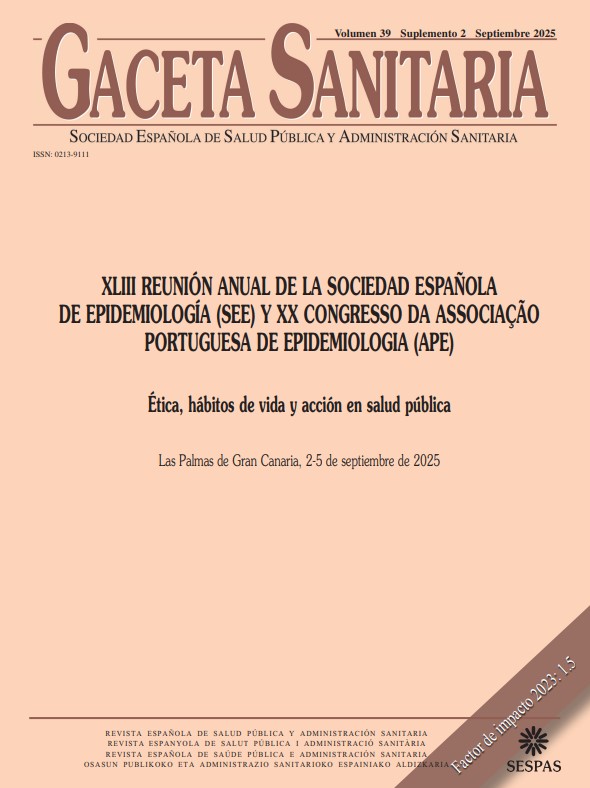744 - ADHERENCE TO THE MEDITERRANEAN DIET AND CHANGES IN BODY MASS INDEX
Gasol Foundation; University Ramon Llull; University of Alcalá; University of Lleida; University of Vic; Institut de Recerca Sant Joan de Déu; IMIM Research Institute; CIBER of Pathophysiology of Obesity and Nutrition; CIBER of Epidemiology and Public Health (CIBERESP).
Background/Objectives: Childhood obesity has significantly increased worldwide, with rates exceeding 30% in Spain over the past two decades. Obesity is a multifactorial disease, with an unbalanced diet and lack of physical activity being key factors. While the Mediterranean diet (MedDiet) is considered one of the healthiest, evidence regarding its longitudinal impact on children's weight status is limited. Therefore, this study examines the relationship between adherence to the MedDiet and changes in standardised body mass index (zBMI) and the incidence of excessive weight.
Methods: A total of 1,389 children (694 girls, 695 boys) from primary schools in Catalonia, Spain, participated in this 15-month follow-up study within the POIBC framework. The KidMed index, weight, and height were recorded at baseline and follow-up by trained professionals, along with data on physical activity, screen time, and socioeconomic status. Logistic regression models examined the association between baseline MedDiet adherence and zBMI changes, adjusting progressively for sex, age, lifestyle factors, and baseline zBMI. A cubic spline regression assessed the dose-response relationship, controlling for all covariates.
Results: Multiple logistic regression analysis revealed that a high increase in zBMI was associated with lower odds of eating vegetables once [OR 0.74 (95%CI 0.57-0.98)] or more a day [OR 0.68 (95%CI 0.49-0.95)], nuts 2–3 times/week [OR 0.74 (95%CI 0.56-0.97)] or 2 cups of yogurt or/and cheese daily [OR 0.74 (95%CI 0.55-0.99)]. Not consuming each food item was used as reference. Multiple linear regression analysis showed a negative (β = -0.010, p = 0.040) association between the MedDiet at baseline and changes in zBMI at follow-up, but the significance disappeared (p = 0.082) after final adjustment for baseline zBMI. Dose-response analysis revealed that in the lower MedDiet group, a higher KidMed score was protective against weight gain, while in the medium group, it was linked to increased zBMI. In the highest adherence group, KidMed score variations had no effect on zBMI change.
Conclusions/Recommendations: Baseline MedDiet adherence was not significantly linked to excessive weight at follow-up. A small positive association with zBMI change was observed, but dose-response analysis showed inconsistent results. More high-quality longitudinal studies are needed for clearer evidence.
Funding: Instituto de Salud Carlos III FEDER (PI11/01900 and PI20/00199).















